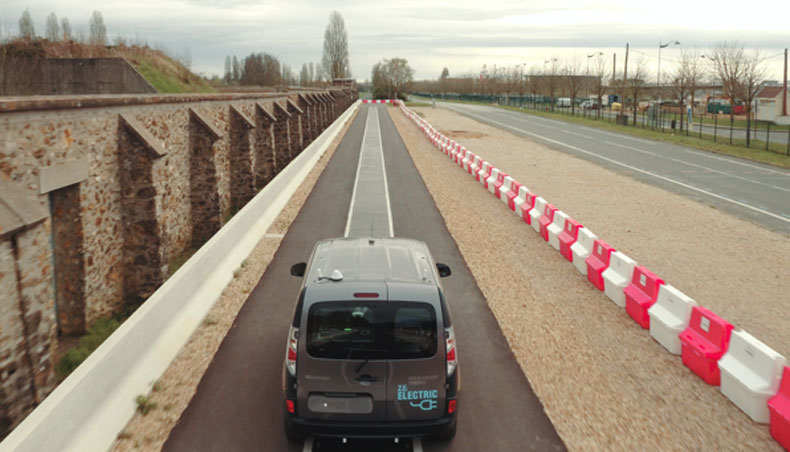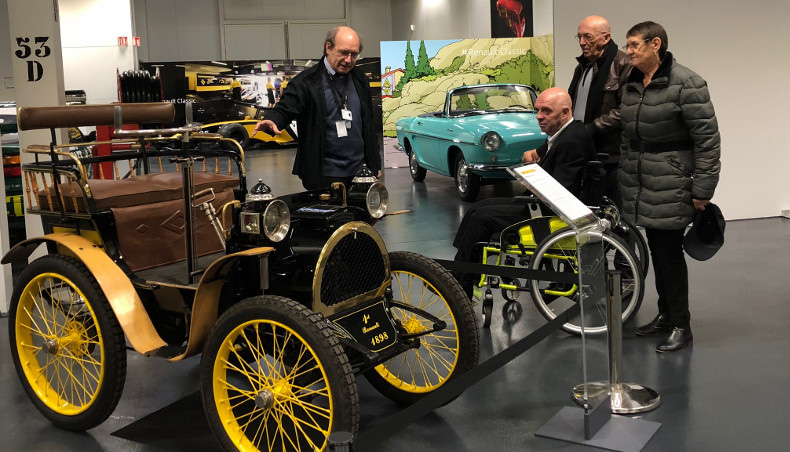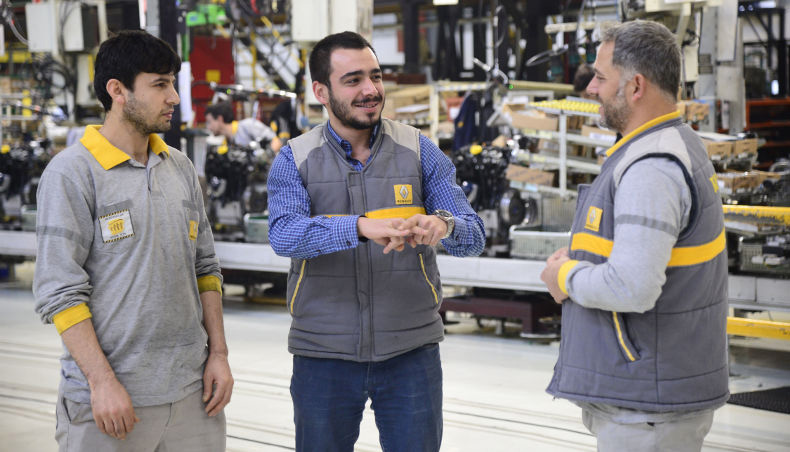

The autonomy of the electric vehicle battery was the focus of a demonstration carried out today on a test track at Satory, France. The Research Department converted two Kangoo Z.E. to incorporate the dynamic wireless charging technology developed by Qualcomm Technologies, a company that specialises in wireless products and services.
 3 questions to Virginie Maillard, Research Director of Groupe Renault
3 questions to Virginie Maillard, Research Director of Groupe Renault
1. What is dynamic wireless charging and what did the experiment involve?
Dynamic wireless charging is based on induction technology (similar to the system used in the induction hotplates that have become an alternative to conventional cooker hobs in the last decade). In practical terms, coils connected to electric cables are put in the ground. The coils emit an electromagnetic field that is picked up by vehicles driving over them and converted into electricity by a system built into the cars.
The purpose of the experiment was to demonstrate the technical feasibility of this new intelligent technology. The DEVC (Dynamic Electric Vehicle Charging) tested today is capable of charging an electric vehicle on the move by delivering a charge of 20 kiloWatts at speeds of up to 100 kilometres an hour. The experiment took place on a 100-metre track built by the Vedecom research institute (which is devoted to personal, carbon-free sustainable mobility) at Satory, in the Paris region of France. It was part of the FABRIC project, a European initiative aimed at analysing the feasibility of DEVC wireless technology. The theory is as follows: if electric vehicle drivers spend 25% of their time on roads equipped with the new technology, they will no longer need to stop at recharging points to top up their batteries.
2. What were the issues at stake in the experiment?
There are two main issues. Firstly, we have to rethink our energy systems. The race to produce the biggest battery is drawing to a close. Batteries are becoming too difficult to manufacture, or too heavy and bulky to be fitted into vehicles. So we are looking for new ways to balance our use of energy, which will involve shifting the focus of a car's range towards charging and infrastructure rather than the energy on board the car. Meanwhile, as the European electric vehicle market continues to grow, the aim is to offer an alternative to conventional recharging stations, and to compensate for the limited number of such stations, as well as the time needed for a complete recharge. Those are the main obstacles to the use of electric vehicles, after the question of range.
3. What are the opportunities for Renault?
Developing this kind of technology will be an important lever in increasing our sales volumes and market share in the future. The two main obstacles that deter people from buying electric cars (range and recharging) would then be lifted. It is also a new promise to electric vehicle buyers: "Never plug" (they will never have to plug their car into a socket again). It is also completely in line with the Renault brand slogan "Easy life" – making life easier for our customers.
 Virginie Maillard has been VP Research of Groupe Renault since 2014, under the Renault-Nissan Alliance. She is also in charge of Groupe Renault’s research strategy.
Virginie Maillard has been VP Research of Groupe Renault since 2014, under the Renault-Nissan Alliance. She is also in charge of Groupe Renault’s research strategy.

 3 questions to Virginie Maillard, Research Director of Groupe Renault
3 questions to Virginie Maillard, Research Director of Groupe Renault


